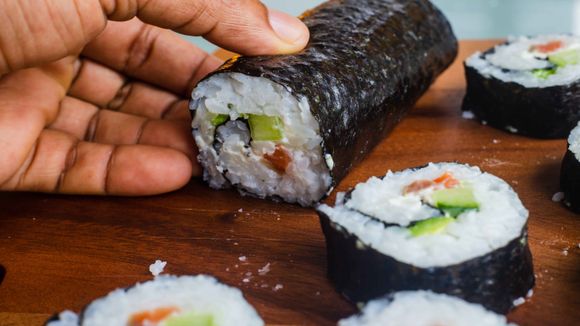Cystic Fibrosis: Causes, Symptoms, and Risk Factors
Cystic fibrosis is a genetic disorder that affects the body's ability to produce a protein called CFTR. This protein helps regulate the balance of salt and water in our cells. In cystic fibrosis patients, the absence or malfunction of CFTR causes thick, sticky mucus to accumulate in the lungs and pancreas, leading to breathing difficulties and digestive problems. Symptoms can include persistent coughing, frequent lung infections, and poor weight gain. The primary risk factor for developing cystic fibrosis is having two copies of the mutated CFTR gene, one from each parent.
The Seaweed Connection
Recent scientific studies have discovered that certain seaweed extracts can help improve the function of the CFTR protein in cystic fibrosis patients. One such extract, known as alginate oligosaccharide, has shown promising results in laboratory tests. Researchers at the University of California, San Francisco, found that alginate oligosaccharide significantly improved the function of CFTR in cells with cystic fibrosis mutations, potentially alleviating some of the disease's symptoms.
Another study conducted by researchers at the University of Naples Federico II in Italy found that fucoidan, a natural compound extracted from brown seaweed, reduced inflammation and improved lung function in mice with cystic fibrosis. These findings suggest that fucoidan could help in the development of new treatment strategies for patients with this disease.

Photo by Louis Hansel on Unsplash
Seaweed in Your Kitchen
The exciting news about seaweed's potential for treating cystic fibrosis may inspire you to include more of this nutrient-rich ingredient in your diet. Seaweed can be easily incorporated into various recipes, such as soups, salads, and sushi. Here are a few simple ideas to get you started:
- Seaweed Salad: Toss together a mix of seaweed, such as wakame, arame, or kelp, with thinly sliced cucumbers, carrots, and a light dressing of soy sauce, rice vinegar, and sesame oil.
- Seaweed Soup: Combine miso paste, water, tofu, green onions, and your favorite seaweed, like kombu or nori, for a comforting and nutritious soup.
- Seaweed Wraps: Use nori sheets as a base to create sushi rolls or as a wrap for your favorite sandwich ingredients.
Please note that while seaweed is generally safe for consumption, some people may have allergies or sensitivities. Consult your healthcare provider before adding seaweed or its extracts to your diet.

Photo by 愚木混株 cdd20 on Unsplash
Questions and Answers
Q: Can seaweed cure cystic fibrosis?
A: While seaweed extracts have shown promising results in improving symptoms of cystic fibrosis, they are not a cure. However, they may play a significant role in future treatment strategies to help manage the condition and improve patients' quality of life.
Q: Is seaweed extract available as a supplement?
A: Yes, seaweed extracts, such as alginate oligosaccharide and fucoidan, are available in supplement form. Consult your healthcare provider before starting any new supplement regimen, especially if you have a medical condition like cystic fibrosis.
Q: Can people without cystic fibrosis benefit from consuming seaweed?
A: Absolutely! Seaweed is a nutrient-rich food containing essential vitamins, minerals, and dietary fiber. It can be a healthy addition to most diets, providing numerous health benefits beyond its potential role in cystic fibrosis treatment.
Q: How soon can we expect seaweed-based treatments for cystic fibrosis?
A: While the research on seaweed extracts for cystic fibrosis is promising, more studies are needed to determine their safety and effectiveness in humans. It may take several years before seaweed-based treatments become widely available, as they must undergo rigorous testing and regulatory approval processes.
Q: Are there any other natural remedies for cystic fibrosis?
A: While there is no cure for cystic fibrosis, some natural approaches may help alleviate symptoms and improve overall health. These can include a balanced diet, regular exercise, and maintaining good air quality in the home. However, it is essential to consult your healthcare provider before starting any new treatment or making significant lifestyle changes, especially for individuals with cystic fibrosis.









